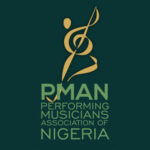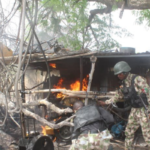
Prof Ranti Familoni, an expert in Medicine and Cardiology from Olabisi Onabanjo University, discusses with TEMITOPE ADETUNJI the phenomenon of people collapsing while enjoying sporting activities and during social gatherings, leading to sudden death
There have been reports that an All Progressives Congress chieftain, Cairo Ojougboh, a serving National Youth Service Corps member and three slumped and passed away while watching the Nigeria vs. South Africa football match on Wednesday, what are the medical reasons behind such occurrences?
These are cases of sudden cardiac death. SCD usually occurs in people with an underlying heart disease, which they may or may not be aware of.
Can you explain how underlying heart conditions may contribute to sudden collapse during such events or activities?
In the index cases we are considering can be divided into two broad groups – SCD in the young as in the NYSC guy, and the elderly as in the politician. In the young, it might be due to congenital causes that took place from pregnancy, particularly in the first three months of pregnancy, or hereditary genetic disorders, particularly hypertrophy cardiomyopathy, which is the commonest cause of sudden death in the young during or soon after exercise. This exercise condition may include sports, sex, or the excitement of watching sports. In the elderly, underlying conditions include hypertension, diabetes, high cholesterol, etc.
In persons with these underlying issues, exercise or excitement will increase sympathetic output and hormones, which may race up the heart or lead to irregular rhythms such as ventricular tachycardia or fibrillation, leading to sudden death. Other things like blockage of the blood vessels carrying blood to the muscles of the heart causing heart attack, and rupture of blood vessels carrying blood to the brain causing massive stroke can also occur.
How does the environment, such as temperature and crowd density impact the risk of sudden collapse?
In a hot humid environment, there is dilatation of the blood vessels of the skin and periphery of the body. In predisposed individuals, this may lead to a precipitous lowering of blood pressure and collapse. Remember heat stroke in some communities.
What are some warning signs or symptoms that individuals may experience before collapsing suddenly?
The warning signs include fast, heavy, and irregular beating of the heart, giddiness, and inability of the eyes to focus properly. Some people may vomit. There is also a feeling of impending death.
In your experience, what percentages of sudden collapses are due to undiagnosed medical conditions?
Since many people do not go for routine medical checks and are not aware of the state of their hearts and BP, more than 50 per cent of these deaths are unpredictable.
How crucial is bystander intervention in providing immediate assistance to someone who collapses suddenly?
The role of the bystander is crucial since most of these deaths become inevitable within four minutes of the onset of the event. The role of the bystander begins with training information in the media about what we call basic life support or BLS. The victim must be laid flat on a firm to hard surface for mouth-to-mouth breathing and pounding of the chest to begin immediately.
Is there any advancement in cardiology or emergency medicine that has improved the management of sudden collapses?
Certainly, there is advanced life support, which is a fundamental training for emergency medicine physicians, components of which are improving daily.
What is the importance of public awareness and education regarding recognising and responding to sudden collapses?
Public awareness cannot be overemphasized. Many of these deaths can be prevented within the four-minute window by members of the public. This awareness should not only be in the media, but also schools, religious houses, and professional associations during their annual conferences, etc. It should be an integral part of the NYSC orientation programme.
What measures can event organisers take to minimise the risk of sudden collapses during gatherings or activities?
Basic safety rules in public gatherings like the venue being well aerated, escape routes and prevention of overcrowding should be enforced. Every hall, cinema, and public place should have an automatic emergency defibrillator for cardiopulmonary resuscitation.
Are there particular demographic groups that are more susceptible to sudden collapse, and if so, why?
As discussed earlier, it could happen either in the young adult or the elderly for different reasons.
Can you share insights from previous cases or studies that shed light on the causes of sudden collapse?
The most celebrated case of sudden cardiac death during exercise was that of (Sam) Okwaraji while playing for the Super Eagles (against Angola) at the National Stadium in Lagos (on August 12, 1989). There have been other isolated cases across the country. We have reported the case of a policeman at the police academy due to hypertrophy cardiomyopathy. Of course, it is widespread in older patients with hypertension, diabetes, etc.
How does alcohol consumption or substance use contribute to the occurrence of sudden collapse or cardiac arrest?
For anybody with a predisposing heart condition, alcohol intake will further weaken the already weak heart. Also, there is a concept of alcoholic cardiomyopathy. Excessive alcohol intake during the first three months of pregnancy may cause some congenital damage to the foetus.
What steps can individuals take to reduce their risk of sudden collapse, especially in social settings?
Organisers of public functions have a responsibility as stated above. Individuals with heart conditions should avoid undue exercise or excitement. People should learn to control their emotions and modulate their activities.
What immediate actions should bystanders take if they witness someone collapsing suddenly?
Bystanders should not run away or begin to video or go for their phone cameras. Get the patient on a flat surface, and start mouth-to-mouth breathing and cardiac banging.
What is the role of medical professionals in responding to and managing sudden collapses during events?
The training of all medical personnel in cardiopulmonary resuscitation is being improved daily. The ALS is in the realm of professionals and not bystanders.
How can emergency medical services be better equipped to handle sudden collapses in public settings?
The above efforts of bystanders or professionals will not yield the desired results without adequate infrastructure legislation and enforcement. For example, the bystander is supposed to ask for help through emergency numbers like 199,999, etc. Are these available? The medical responders must have a standby team, including a well-fuelled ambulance, to move to the site and bring the patient to a well-equipped cardiac coronary unit. Are these available? The political will, is it available?
Can you address any misconceptions or myths surrounding sudden collapse?
For many people, their first reaction is to run away. This is wrong. People run away from those who have epileptic attacks, saying the saliva that comes out from the mouth will make others have epilepsy, which is wrong. In running away from them, some have been left to choke from the attack and die. What people call magun during exhausting sexual intercourse might be a sudden cardiac death following exercise. The use of sexual enhancement drugs, particularly in people with underlying heart conditions, should be discouraged.
What are the most effective strategies for preventing sudden collapse and promoting cardiovascular health in the community?
Political will, education, dissemination of information, and personal and individual restraints; but most importantly, there should be regular medical checks.
As the final game of AFCON approaches, should football fans with heart conditions stay away from watching it because of the fear of sudden cardiac attack?
The answer depends on the individual. Use your drugs and control your emotions. I have a doctor colleague who stays away from football matches because it is difficult for him to control his emotions. However, the issue is not only for those who already know that they have heart conditions but for the very many who are not aware. Hypertension, for example, is called a silent killer because up to 50 per cent of those who have it are not aware that they have it. There is also a condition called Takotsubo cardiomyopathy in which the individual is unaware but it manifests after a stressful condition, including disappointment and bereavement, and might lead to sudden death.
Who should think twice about watching Sunday’s match due to heart health concerns?
Everybody but particularly those with what I call unstable cardiovascular conditions.
How should Nigerian fans balance football fervour with family ties?
The match will come and go, but the individual and his life will continue. One good thing that can come out of this unfolding event is for everyone to take time to see their doctor and check their cardiovascular status.
How does the outcome of a football match like the AFCON final impact the psychological well-being of fans, and how can individuals cope with the stress of victory or defeat?
Our coping mechanisms differ and this goes beyond cardiovascular health. However, this is where Takusubo cardiomyopathy intercalated with psychology.
As a medical expert, what warning signs should fans be aware of that might indicate they need to seek medical attention during or after the AFCON final?
The first warning is to at the very minimum check your BP. Other things might not be practicable before Sunday. If your heart starts beating too fast or irregularly, it is time to get up and probably seek help.
What would you ask wives of football lovers who are aware of the health conditions of their husbands concerning watching football?
Wives should be able to persuade susceptible persons to stay away from the match, particularly at critical times like penalty shootouts.
Are there drugs that those sets of people should use while watching such an important match?
Use your regular prescribed drugs. That is the best advice. However, this does not guarantee that an event might not happen. Not doing what is detrimental to your health is part of lifestyle modification and sensible living.





